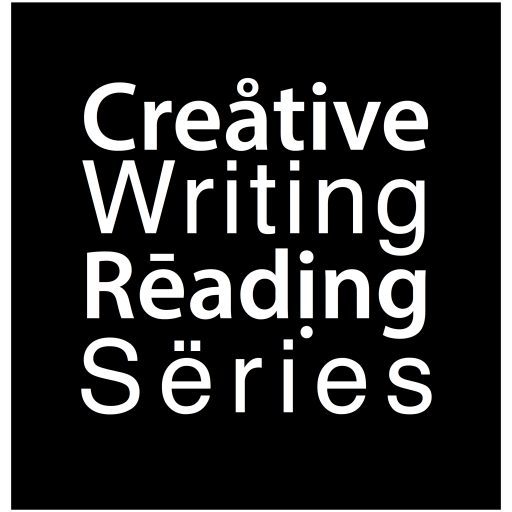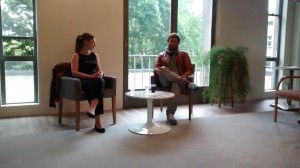It’s ten to six. In a few minutes you’ll be reading your work in public. Maybe it’s the first time you’ve done this. Breathe. Drink some wine (enough for the nerves, not too much for the tongue). The room is filling up. You know some of the faces, but there is one you daren’t look at. Now the hush, the introductions. The paper in your hand wrinkles. That was your name. Was that your name? Stand up, walk to the front of the room. Everyone is looking at you, and one of them, that one, with his hand on his chin, reading your words as you stumble over them, is a man who has been in the industry for two decades, made literary stars out of unknown scribblers – people like you, people like you want to be – and he has rubbed shoulders with the writers whose work you have spent the last five years of your life studying, distant legends of poetry and prose.
Thankfully, Lee Brackstone knows how you feel. Before launching into stories of his publishing career, his own mistakes and successes, he praised the bravery of those CW Reading series postgrads – Hristina Hristova, Inge Watson, Matthew Gregory and Wendy Edwards – who had graced the stage before him. ‘Reading in public doesn’t get any easier’ he said, ‘but publishers function better on two glasses of red wine after six o’clock.’
Of few words before the event, Brackstone had plenty to say when given his ground. He has seen vast changes in the publishing landscape since he cut his teeth in the offices of Faber and Faber in 1996. Having fallen in love with the ‘handsome black livery’ of Faber’s literary list of the ’80s and ’90s – ‘those incredible authors like Milan Kundera’ – he found his first secretarial job there, reading the slush pile, aged 21. Stepping into this circle of privilege – he studied in Manchester, ‘not Manchester, Cambridge’ – Brackstone was one of few ‘outsiders’, signifying a seachange due since TS Eliot’s editorship. He is now an institution himself: or, as he put it, institutionalised. He worked alongside Ted Hughes on The Birthday Letters. He spotted the genius of Jeet Thayil’s stunning debut novel Narcopolis. He now is Editor of Faber and Faber’s Fiction and Music lists.
So what advice did he have for the writers in the room? He admitted that ‘publishing is intimidating’ and can seem ‘like a guarded fortress’. Although there are no secrets to unlocking that tower, some ways are better than others. Firstly, Brackstone’s list is pretty full these days, and the chances of being acquired on his fiction list are slight. He may publish only one new author a year, and he never touches ‘commercial’ fiction. Most books he takes on come through agents; there is no slush pile any more, although exceptions do occur. He looks for ‘that spark’ in a manuscript that sets it apart, and responds ‘at the level of the sentence’. Working on sentence-level writing is key: a writer, he said, should be ‘like a carpenter, learning to plane a table’. Brackstone expects ‘technical virtuosity’, and writing by authors ‘that take risks but are in control’. He likes to know ‘from the first sentence’ what the moral compass of a book will be. The title, first sentence and opening paragraph are, for Brackstone, ‘the blueprint of a novel’. Authenticity is essential: he can see through those who write to pay the mortgage, rather than those who simply ‘have to’ write. ‘I read for style; it’s the style that excites me.’
Balancing his high expectations of literary fiction with the demands of the Sales Director and financial targets is a major part of Brackstone’s job. Many of his acquisitions go on to be prize winning successes, so he is known to have a good scent for talent. Despite this, he has his ‘war stories’, those missed opportunities that he never got to sign. His first acquisition for fiction didn’t get the go-ahead, so someone else signed up Dave Eggers’ AHWOSG. He hounded colleagues with a 600 page masterpiece by ‘a dead Chilean writer that nobody else believed in’, and watched as another house enjoyed the acclaim of publishing Roberto Bolano in translation. There are other times when he has failed to spot things himself. ‘Sometimes the reading doesn’t go right.’ And there is always the matter of taste, which is why Brackstone has fellow fiction editors to pass books to that have potential but just don’t appeal.
So, supposing a writer has fulfilled these criteria, what route does he recommend for publication? Firstly, finding an agent: the right one. ‘Find out which agent represents the kind of writing you like. Publishing works on every level on the basis of sycophancy and flattery.’ An element of showboating is essential, while maintaining that vital authenticity. ‘You need to get their attention. It’s all about showing you are smart enough and you care, and that what you do is true.’
So you’ve read your work and survived. You’ve got a script. You’ve read Lee Brackstone’s recommended fiction highlights (The Sun Also Rises; Tender is the Night; Something Happened; White Noise). What next?
Bring your notebook along to Keynes SCR on Wednesday 4th June, 6pm, and find out What Agents Really Want. David Miller of RCW Literary Agency will be ready to answer your questions.
See you there.
Sonia
P.S. Don’t forget there is more still to come of the Full English Festival, including a programme of high profile speakers throughout the week – facebook.com/fullenglishfestival

